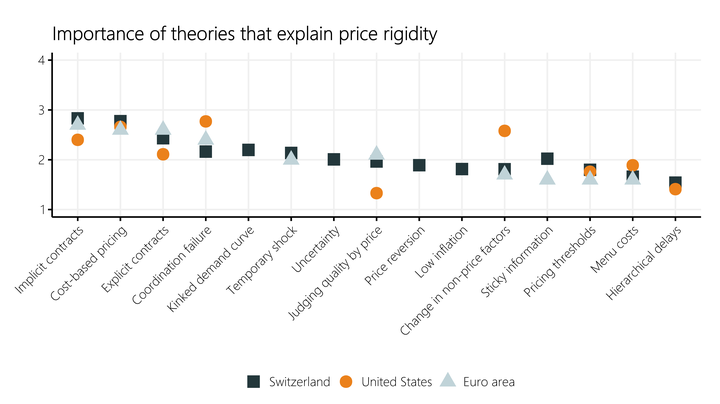How Do Companies Set Their Prices? Survey Evidence From Switzerland

Abstract
Using a survey of Swiss companies, this paper provides qualitative evidence on price-setting behavior along different stages of price adjustment. The timing of price reviews is determined by both time-dependent and state-dependent pricing rules. In price calculations, firms consider current rather than past or expected future economic developments, determine prices relative to their competitors rather than using markup rules, and discriminate prices rather than adopting uniform pricing. Price changes occur less frequently than price reviews, are synchronized within rather than across firms, and exhibit flat but upward-sloping duration hazard. Labor costs, supplier prices, and the costs of raw materials are most important for pass-through, which is asymmetric in response to cost and demand shocks. Price rigidities are determined by customer relationships (implicit and explicit contracts) as well as cost-based pricing rules.